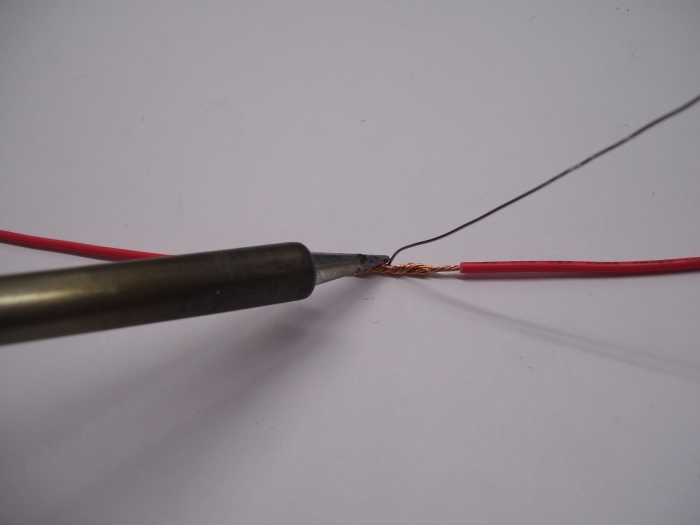How to Solder Audio Cable

Soldering audio cables at home is a nice and easy way to make new connections. Soldering is secure way to join cables, as it makes the connections strong and also makes the wires free of static charge. An alternate to soldering is to use jacks for easy connections, but they do not offer the high quality of sound that soldered wires produce.
You should know the basics of internal architecture of cables and also need to have some expertise in basic electronics to solder audio cables successfully.
Things Required:
– Wire cutters
– Wire clippers
– Solution tape
– Solder
– High quality audio cables
– Protective gloves
Instructions
-
1
You will have to choose a high quality wire to begin with. There are many parameters for gauging the performance of sound cables such as the thickness of wire, the resistance of the wire, the insulation material used and many more. It’s important to learn the internal architecture of the wires before moving forward.
-
2
You should practice on old faulty cables to improve your soldering skills. If you have a faulty 3.5 mm cable that stopped working all of a sudden, there is no need to throw it away. The most common culprit is the audio jack. You can cut the wire and solder a new jack and your cable will be good as new.
-
3
All sound cables have an insulated conductor which is protected by a metallic shield. You will have to cut through the insulation material and solder the metal conductor of one wire with the other. Sometime the insulation layer is difficult to cut through, so purchase a sharp set of wire cutters and clippers.
-
4
Some audio cable are paired, that is there are two conductors within a single insulation sheath. They are a bit tricky to solder.
For soldering, connect the solder to the electric socket and give it 2 minutes to get hot. Unplug the wire from the device and split the wire if it’s a paired cable. Strip the wires using a wire clipper. Insulation on wires is about a quarter of an inch thick, so cut through the wire to about 1 /4 of an inch. -
5
Remove enough insulation material so that there is enough naked conductor for the soldering to take place. Connect the solder gun to the solder material and solder the wires. Drop solder over the connection till the conductor is no longer visible. Wait for the joint to cool down, then cover it with the help of a tape.







